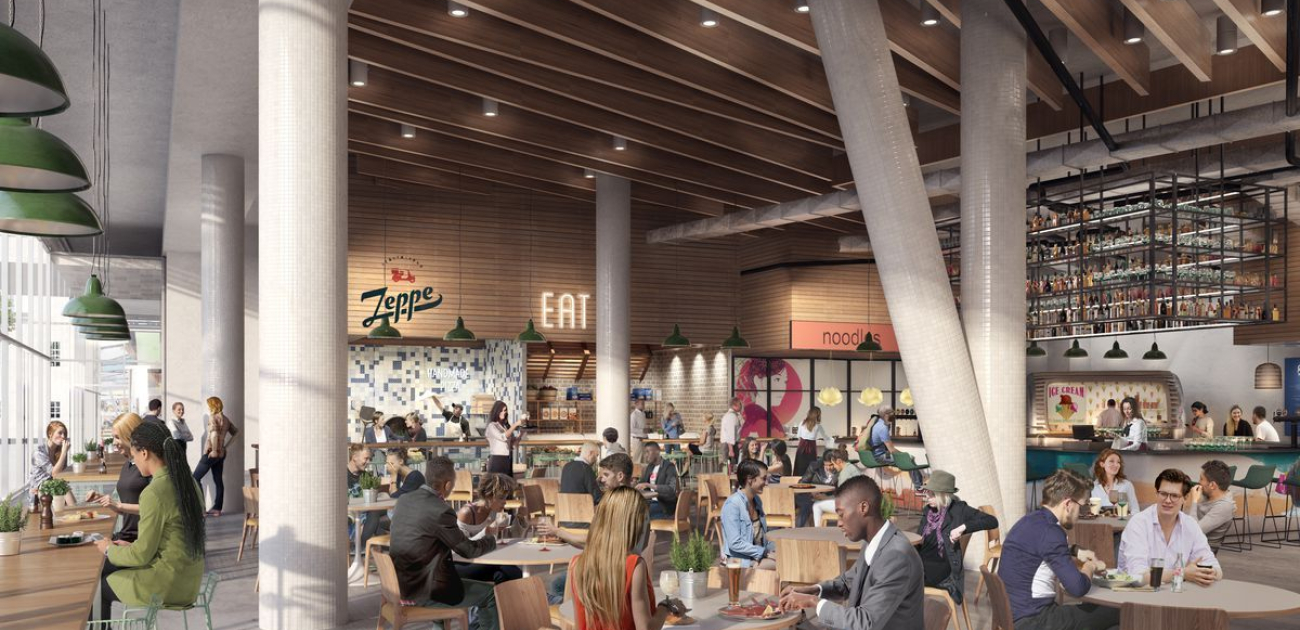We’re Here for the Food Hall Party
If you haven’t eaten at a food hall yet… it is likely only a matter of time before you do. They are popping up all over the country and are gaining popularity. Unlike traditional mall food courts, food halls typically include higher end and trendy concepts all within one central space. Food halls are often located in urban areas, targeting millennials and high traffic areas to tempt as many customers as possible. They draw crowds even in times of declining retail sales and changing shopping habits and developers are using them to fill space that was previously occupied by retailers or as an amenity to residential, office or retail projects.
A property owner may either enter into a lease arrangement with a food hall operator that then manages the hall or the developer acts as the food hall operator. In each instance, the owner/operator handles all of the coordination for the building and each restauranteur is responsible only for its space within the food hall. This platform provides many opportunities for chefs to introduce a new brand, expand an existing brand to new customers and to try out unique concepts all while controlling their overhead. Of course, this is not without its challenges. Each chef will have their own ideas of what works best for their concept and their customers and the owner/operator will need to coordinate all of the parties in order to create a design that appears unified for the customers.
Since they are homes for multiple vendors all in one central location, food halls allow customers to experience a variety of cuisines and surround themselves in the energy of so many restauranteurs all merged together. There is tremendous flexibility to choose whether to grab and go, enjoy fast casual dining or to sit down, stay longer, take in the scene and try multiple stations. The choices are endless and offer price points at all levels and increased convenience when dining with friends who may have different dietary needs or cravings.
The rate that food halls are growing is staggering. The number of food halls operating in the United States is expected to exceed 200 in 2019, about double the number that were open in late 2016. Chicago, whose French Market was an early food hall pioneer in 2009, now has at least a dozen across the city, including Aster Hall, on the fifth and sixth floors of 900 N. Michigan Avenue. Denver, which got its first food hall in 2013, expects to see five more food halls open by the end of 2019. In Boston, food halls will be opening soon at the entrance to TD Garden- The Hub on Causeway, High Street Place connecting two major Boston office buildings (160 Federal with 100 High Street), Time Out Market in the Fenway area.
The popularity does not seem to be slowing, so the next time that you are hungry… check out a food hall nearby so you can be a part of the ever changing retail landscape. Relax, eat, take it all in and enjoy!
Do you want more information?
 Melissa Rivers
Melissa RiversCommercial transactions, including representation of clients in connection with the acquisition, financing, disposition and leasing of real property are the focus of Melissa Rivers’ practice. Melissa is a Senior Attorney in the firm’s Real Estate group.

